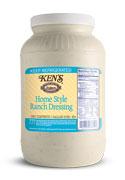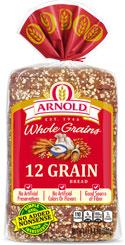Companies
Pulse-Based Peatos Snack Beards The Lion – Er, Cheetah – In Its Den
 A Los Angeles-based start-up believes it is offering a more healthful alternative to the current orange-colored puffy snacks – read Frito-Lay Cheetos – that Americans love so much. Peatos from World Peas Brand have replaced the traditional corn or potato base with a pulse (peas) base and have “cleaned up” the seasonings – all while maintaining “the explosive flavor and vibrant colors.” Peatos are a crunchy puffed snack that contain twice the protein (four grams) and three times the fiber (three grams) of competitor Cheetos. They are made with non-GMO ingredients, have no artificial flavors, no synthetic colors, and no added MSG. PepsiCo, parent company of Frito-Lay's Cheetos, last May sent a cease-and-desist letter to World Peas after Peatos began hitting store shelves. According to reports, PepsiCo said Peatos (tiger image) "is confusingly similar to and dilutes the Cheetos (cheetah image) brand." [Image Credit: © Werner Weisser]
A Los Angeles-based start-up believes it is offering a more healthful alternative to the current orange-colored puffy snacks – read Frito-Lay Cheetos – that Americans love so much. Peatos from World Peas Brand have replaced the traditional corn or potato base with a pulse (peas) base and have “cleaned up” the seasonings – all while maintaining “the explosive flavor and vibrant colors.” Peatos are a crunchy puffed snack that contain twice the protein (four grams) and three times the fiber (three grams) of competitor Cheetos. They are made with non-GMO ingredients, have no artificial flavors, no synthetic colors, and no added MSG. PepsiCo, parent company of Frito-Lay's Cheetos, last May sent a cease-and-desist letter to World Peas after Peatos began hitting store shelves. According to reports, PepsiCo said Peatos (tiger image) "is confusingly similar to and dilutes the Cheetos (cheetah image) brand." [Image Credit: © Werner Weisser]
EPA Plans To Regulate Toxic Chemicals Found In Drinking Water
 The U.S. Environmental Protection Agency (EPA) last month announced plans to set a maximum drinking water contaminant level for polyfluoroalkyl substances (PFAS), a man-made substance found in food packaging, cleaners, water-repellent fabrics, Teflon-coated cookware, and cleaning products. The contaminants are also found in firefighting foams, which have seeped into groundwater sources that reach millions of drinking taps. The process could take months at least, and critics say the move is a stalling tactic to protect industry interests, given the health risks known. The chemicals have been linked to reproductive and developmental conditions, as well as liver and kidney, and immunological effects. They also contribute to low infant birth weights, thyroid problems, and some cancers. By the end of the year, the agency will propose a regulatory determination, which is the next step legally required under the Safe Drinking Water Act.[Image Credit: © ImagesBG from Pixabay]
The U.S. Environmental Protection Agency (EPA) last month announced plans to set a maximum drinking water contaminant level for polyfluoroalkyl substances (PFAS), a man-made substance found in food packaging, cleaners, water-repellent fabrics, Teflon-coated cookware, and cleaning products. The contaminants are also found in firefighting foams, which have seeped into groundwater sources that reach millions of drinking taps. The process could take months at least, and critics say the move is a stalling tactic to protect industry interests, given the health risks known. The chemicals have been linked to reproductive and developmental conditions, as well as liver and kidney, and immunological effects. They also contribute to low infant birth weights, thyroid problems, and some cancers. By the end of the year, the agency will propose a regulatory determination, which is the next step legally required under the Safe Drinking Water Act.[Image Credit: © ImagesBG from Pixabay]
Foodservice Companies Adjust To Consumer Demands For “Clean Label’

Foodservice operators, including restaurants, retailers, and suppliers, say they are working hard to meet emerging consumer demands for “clean label” foods that feature simpler ingredient lists. Health-conscious consumers have become wary of foods containing artificial flavors or preservatives and “processed" or “chemical-sounding" ingredients. They also have grown to conflate the terms “natural," “healthful" and “wholesome." But no single “natural" term has emerged as the one Americans most associate with health, says researcher Technomic. Terms now found on menus and food products include: “preservative-free," “no artificial sweeteners," “unprocessed," “antibiotic-free,” “hormone-free," “organic," “clean," “GMO-free," “grass-fed," and “real." [Image Credit: © Ken's Foods, Inc.]
Milk Producers Urge FDA To Enforce Legal Definition Of “Milk”
 The National Milk Producers Federation (NMPF) has filed a citizen petition with the FDA proposing that plant-based brands that do not match dairy counterparts nutritionally should use the term imitation (e.g., imitation milk); while those that do match dairy nutritionally should use terms such as substitute or alternative (e.g., yogurt alternative). The NMPF said dairy milk is a key source of nutrients, including vitamin D, a nutrient in milk that has virtually eliminated the disease known as rickets. The Federation says the FDA’s decades lack of enforcement of laws that limit the term milk to the lacteal secretions of cows has allowed marketplace chaos to grow exponentially. The Plant Based Foods Association, however, argues that requiring a disparaging word such as imitation on labels would violate the First Amendment. Moreover, the NMPF is trying to solve a problem that does not exist: consumers are not confused, and they are not being misled.[Image Credit: © Lisa Redfern from Pixabay]
The National Milk Producers Federation (NMPF) has filed a citizen petition with the FDA proposing that plant-based brands that do not match dairy counterparts nutritionally should use the term imitation (e.g., imitation milk); while those that do match dairy nutritionally should use terms such as substitute or alternative (e.g., yogurt alternative). The NMPF said dairy milk is a key source of nutrients, including vitamin D, a nutrient in milk that has virtually eliminated the disease known as rickets. The Federation says the FDA’s decades lack of enforcement of laws that limit the term milk to the lacteal secretions of cows has allowed marketplace chaos to grow exponentially. The Plant Based Foods Association, however, argues that requiring a disparaging word such as imitation on labels would violate the First Amendment. Moreover, the NMPF is trying to solve a problem that does not exist: consumers are not confused, and they are not being misled.[Image Credit: © Lisa Redfern from Pixabay]
Bimbo Says Its Arnold, Brownberry, and Orowheat Bread Is Now “Clean Label”

Bimbo Bakeries USA announced that one of its bakery brands is now being produced without artificial preservatives, colors, flavors, or other dubious compounds and chemicals. The company’s “No Added Nonsense” initiative was created to meet consumer demands for “clean label” baked goods with “simple, easy-to-recognize” ingredients, the company said. The Arnold, Brownberry, and Oroweat brand also removed monoglycerides, diacetyl tartaric acid esters of monoglycerides (DATEM), and high-fructose corn syrup from its whole grain line, which includes Oatnut, 100 percent Whole Wheat, 12 Grain, Healthy Multi-Grain and Health Nut. In previous years, the brand removed bromate, bleached flour, azodicarbonamide (ADA), SSL & CSL, and partially hydrogenated oils (PHOs) from all breads.[Image Credit: © Bimbo Bakeries USA, Inc.]
Other
Still No “Singular Definition” Of “Clean Label”
 The Hartman Group, a food and beverage industry trends analyst, says there really isn’t “any one singular definition” of the term “clean label”, but a handy rule of thumb might be: foods that are as close to their natural state as possible. Essentially that means foods that are “fresh, real, and less processed,” said a Hartman Group analyst. An Ingredion study found that consumers value ingredient lists almost as much as price as they look for products free-from additives and artificial ingredients. Seventy-eight percent of U.S. consumers find it important to recognize the ingredients used in the products they buy (up from 66 percent in 2011). Other considerations becoming important in food choice and clean label include specific health claims, the manufacturer/brand, and country/region of origin. Consumers’ most accepted ingredients include natural flavors, natural colors, flour, vegetable oil, and sugar.[Image Credit: © Robert Owen-Wahl from Pixabay]
The Hartman Group, a food and beverage industry trends analyst, says there really isn’t “any one singular definition” of the term “clean label”, but a handy rule of thumb might be: foods that are as close to their natural state as possible. Essentially that means foods that are “fresh, real, and less processed,” said a Hartman Group analyst. An Ingredion study found that consumers value ingredient lists almost as much as price as they look for products free-from additives and artificial ingredients. Seventy-eight percent of U.S. consumers find it important to recognize the ingredients used in the products they buy (up from 66 percent in 2011). Other considerations becoming important in food choice and clean label include specific health claims, the manufacturer/brand, and country/region of origin. Consumers’ most accepted ingredients include natural flavors, natural colors, flour, vegetable oil, and sugar.[Image Credit: © Robert Owen-Wahl from Pixabay]
Miss. Law Bars Cultured Protein From Being Labeled Meat
.jpg&width=125&height=94) Mississippi Gov. Phil Bryant has signed into law a bill prohibiting the labeling of animal cultures, plants, and insects as meat. The Senate bill passed unanimously in the state House of Representatives on February 28. The representative who handled the bill in the House said the legislation won't prohibit anyone from producing the products, but will prohibit labeling it as meat in Mississippi. A state senator said: "If it's not meat, it can't be labeled as such." Engineered animal protein and plant-based protein products, such as the Impossible Burger, are a growing trend in the U.S., raising concerns among lawmakers about accurate labeling. Other states that have either passed, or are considering, similar legislation include Missouri, Nebraska, Wyoming, and Virginia. The Mississippi bill will take effect July 1.[Image Credit: © Free-Photos from Pixabay]
Mississippi Gov. Phil Bryant has signed into law a bill prohibiting the labeling of animal cultures, plants, and insects as meat. The Senate bill passed unanimously in the state House of Representatives on February 28. The representative who handled the bill in the House said the legislation won't prohibit anyone from producing the products, but will prohibit labeling it as meat in Mississippi. A state senator said: "If it's not meat, it can't be labeled as such." Engineered animal protein and plant-based protein products, such as the Impossible Burger, are a growing trend in the U.S., raising concerns among lawmakers about accurate labeling. Other states that have either passed, or are considering, similar legislation include Missouri, Nebraska, Wyoming, and Virginia. The Mississippi bill will take effect July 1.[Image Credit: © Free-Photos from Pixabay]
Regulation
USDA, FDA To Jointly Regulate Cultured Meat Products
 Federal agencies USDA and FDA will share regulatory oversight duties for culture meat production to ensure food safety and correct labeling practices. The FDA will oversee cell collection, cell banks, and cell growth and differentiation. During the harvest stage, regulation will shift to the USDA’s FSIS, which will oversee the production and labeling of human food products derived from the cells of livestock and poultry. The USDA said consumers trust the USDA mark of inspection to ensure safe, wholesome and accurately labeled products. The U.S. Cattlemen s Association (USCA) said it was encouraged by the joint regulatory oversight of cell-based meats, and pleased that FSIS will have pre-market labeling authority. The association, however, reiterated its stance that the term meat, and more specifically beef, refers to products derived exclusively from the flesh of a bovine animal harvested in the traditional manner. [Image Credit: © Pexels from Pixabay]
Federal agencies USDA and FDA will share regulatory oversight duties for culture meat production to ensure food safety and correct labeling practices. The FDA will oversee cell collection, cell banks, and cell growth and differentiation. During the harvest stage, regulation will shift to the USDA’s FSIS, which will oversee the production and labeling of human food products derived from the cells of livestock and poultry. The USDA said consumers trust the USDA mark of inspection to ensure safe, wholesome and accurately labeled products. The U.S. Cattlemen s Association (USCA) said it was encouraged by the joint regulatory oversight of cell-based meats, and pleased that FSIS will have pre-market labeling authority. The association, however, reiterated its stance that the term meat, and more specifically beef, refers to products derived exclusively from the flesh of a bovine animal harvested in the traditional manner. [Image Credit: © Pexels from Pixabay]
Copyright 2026 Business360, Inc.

